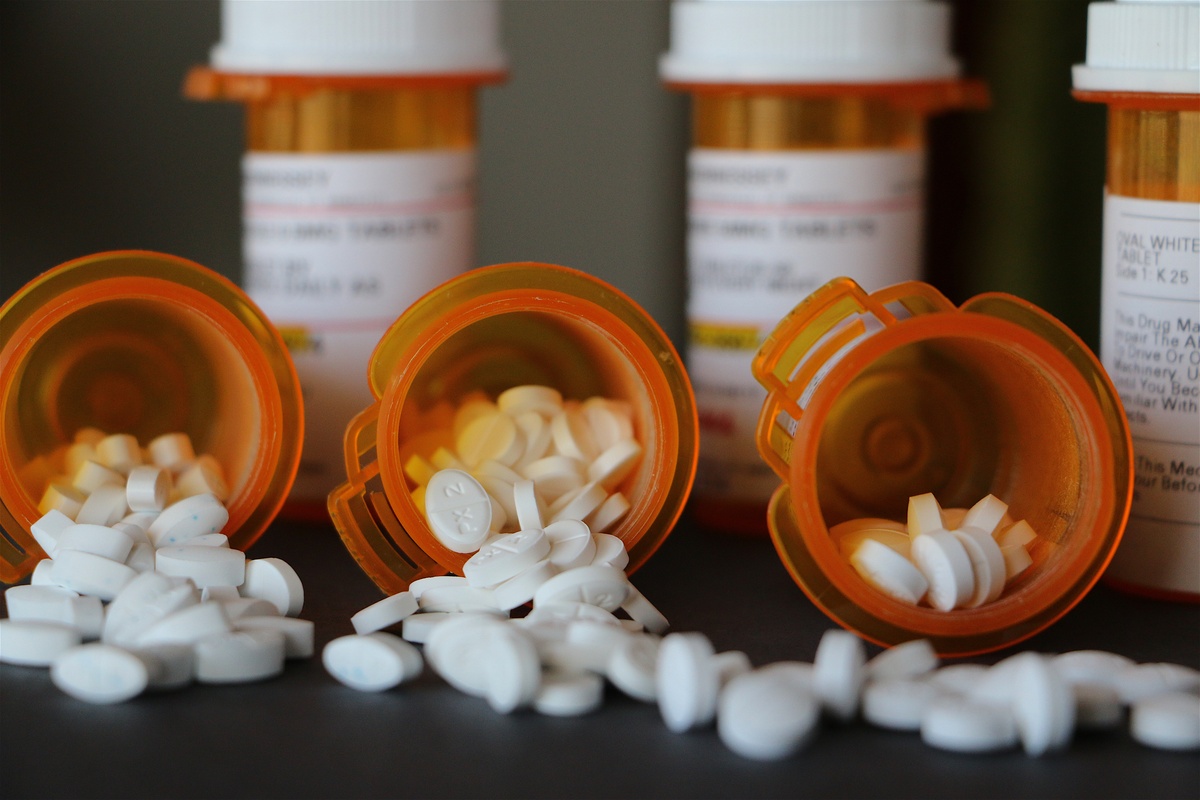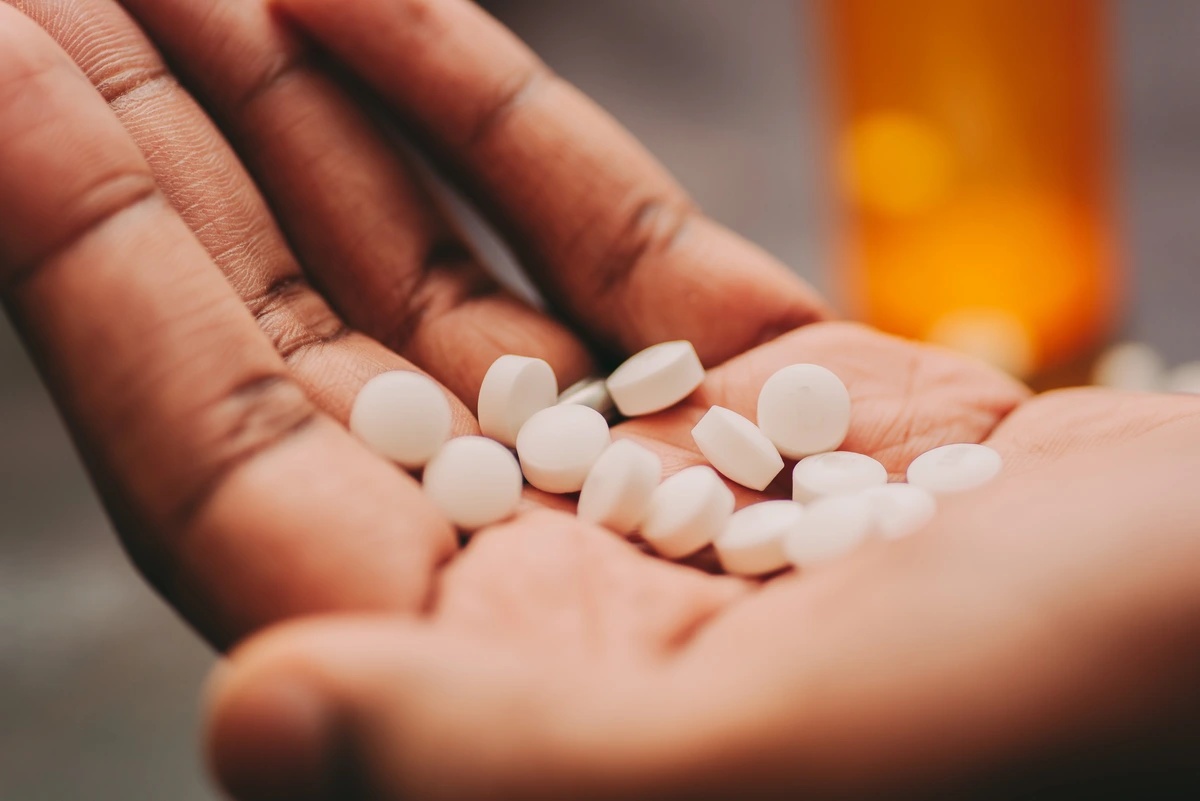Opioid Addiction: Signs, Symptoms, and Treatment Options

We recognize the struggle of breaking the opioid addiction cycle. The isolation, the confusion, the deteriorating health and relationships — and we’re here to remind you that there’s still hope. Read on to learn about the signs, symptoms, and treatment options available for opioid addiction, so that you or your loved one can take the first step toward recovery.
What Is Opioid Addiction?
Opioid addiction is a type of substance use disorder characterized by the compulsive use of opioid drugs. It impacts the brain's reward system, leading to cravings and an inability to control usage. This addiction is complex, affecting individuals at a neurological level as a diagnosable brain disorder.
Risk Factors of Opioid Addiction
Opioids impact an individual's brain by interacting with opioid receptors, altering pain perception and mood regulation. A significant risk factor for opioid addiction is family history, indicating a genetic predisposition to substance abuse. Environmental factors such as peer influence and lifestyle choices like stress levels can also contribute to the development of addiction.

Opioid Addiction Symptoms
By spotting the signs of opioid addiction, you can seek treatment for yourself or a loved one when it’s needed most. Here are a few physical and psychological symptoms to watch out for:
Physical Symptoms
Recognizing early warning signs of opioid addiction is crucial for timely intervention. Drowsiness can be a common symptom, leading to fatigue and lack of energy. Changes in sleep habits, such as insomnia or oversleeping, may also indicate a developing addiction. Flu-like symptoms, including nausea, sweating, and muscle aches, can also manifest during the early stages of opioid use disorder, and a decrease in libido or sexual drive could be another early indicator of addiction.
Psychological Symptoms
Behavioral changes often accompany opioid addiction and can serve as red flags for loved ones to watch out for. Individuals with an opioid addiction may neglect their hygiene due to prioritizing drug use over self-care, for example, and social relationships may deteriorate as they continue to isolate themselves and feed their addiction. Spotting these behavioral shifts is essential for initiating early interventions and seeking help promptly.

We’re Here to Help You Find Your Way
Would you like more information about mental health or drug addiction? Reach out today.
How Is Opioid Addiction Treated?
Starting your recovery journey isn’t easy, but knowing what to expect can make all the difference. Here’s an overview of the treatment process, from initial detox to life after rehab:
Drug Detox
The detoxification stage is the first step in overcoming meth addiction, providing a medically monitored setting for patients to flush out the substance’s toxins. This crucial phase addresses the challenging withdrawal symptoms and sets the stage for comprehensive treatment.
Inpatient Drug Rehab
Inpatient rehabilitation offers a controlled recovery environment with 24/7 medical and emotional support. Ideal for those battling intense addictions, it isolates patients from external temptations, enabling a concentrated focus on recovery.
Outpatient Drug Rehab
Outpatient rehabilitation allows patients to integrate treatment into their regular schedule, accommodating work and family life. It involves consistent therapeutic sessions at a rehabilitation facility, and offers a number of treatment modalities and counseling services.
Aftercare
Aftercare serves as an essential support system post-rehabilitation, helping individuals preserve and protect their sobriety. This phase typically includes continuous therapy and participation in support networks to avoid relapse and encourage a sustained sober lifestyle.

Causes of Opioid Addiction
Opioid addiction can be caused by a combination of factors, including genetic predisposition, environmental influences, and psychological factors. Some individuals may be more genetically susceptible to developing an addiction to opioids, while others may be influenced by their social environment or upbringing.
Additionally, individuals with a history of trauma or mental health issues may be more likely to turn to opioids as a way to cope with emotional pain. The easy accessibility of opioids, whether through prescriptions or illegal means, also plays a significant role in the development of addiction, highlighting how opioid addiction is a complex issue that can stem from several interconnected factors.

We’re Here to Help You Find Your Way
Do you have more questions about mental health or drug addiction? Reach out.
Effects of Opioid Use
Opioid use has certain short-term and long-term effects, with prolonged use risking adverse effects on your physical and social well-being. The effects of opioid use include:
Physical Effects
Opioid use delivers feelings of pain relief, euphoria, relaxation, and drowsiness, but can lead to negative health effects when used recreationally and without any medical guidance, including tolerance, dependence, and addiction.
Psychological Effects
Prolonged opioid use can result in behavioral changes such as mood swings and an increased risk for psychological disorders, like depression and anxiety. Individuals struggling with opioid addiction may also face withdrawal symptoms when not using, further impacting their mental well-being.
Impact on Relationships and Work Life
Behavioral changes are evident in individuals with opioid addiction, including social withdrawal, neglect of responsibilities, and engaging in risky behaviors to obtain opioids. These changes can strongly impact personal relationships and overall well-being.

Why Opioids Are Highly Addictive
Opioids are highly addictive due to their ability to bind to specific receptors in the brain called opioid receptors. When opioids bind to these receptors, they can activate the brain's reward system, leading to feelings of pleasure and euphoria. This reinforcement of pleasurable sensations can create a strong psychological and physical dependence on the drug.
Long-term use of opioids can lead to changes in the brain's chemistry, making it increasingly difficult for individuals to stop using the drug without experiencing withdrawal symptoms. The combination of these factors contributes to the high addiction potential of opioids.

We’re Here to Help You Find Your Way
Do you need advice about mental health or drug addiction? Reach out today.
Types of Opioids
Types of opioids vary in potency and potential for addiction. Some common opioids include oxycodone, hydrocodone, codeine, and fentanyl. Oxycodone and hydrocodone are often prescribed for pain management but can be highly addictive if misused. Codeine is found in some prescription cough medicines but can also be habit-forming, and fentanyl is an extremely potent opioid that is often involved in overdose deaths due to its strength.
It's essential to understand the risks associated with each type of opioid, and use them only as directed by a healthcare provider to avoid addiction and other adverse effects.
Recognizing Withdrawal Symptoms
Withdrawal symptoms of opioid addiction can vary in intensity and duration, but most often include:
Flu-like symptoms such as nausea, vomiting, and diarrhea
Muscle aches and pains
Anxiety and irritability
Insomnia or disrupted sleep patterns
Dilated pupils and excessive sweating
Strong cravings for opioids
Increased heart rate and blood pressure
Tremors or shaking
Depression or mood swings
In severe cases, withdrawal symptoms can also include seizures or hallucinations
If you or a loved one have been experiencing these withdrawal symptoms, seeking immediate help is crucial. Leaving an opioid addiction unchecked can and will ruin your health, chip away at your relationships, and worst case, result in an overdose.

We’re Here to Help You Find Your Way
Would you like more information about mental health or drug addiction? Reach out today.
Preventing Opioid Misuse: Prescription Management
Prescription management plays a core role in addressing opioid addiction. Medications like methadone can help individuals overcome opioid dependence by treating their withdrawal symptoms and cravings. Buprenorphine and naltrexone are also essential in managing opioid use disorder, aiding in the prevention of relapse.
Proper prescription management is vital as it ensures that individuals receive the correct dosage of medication tailored to their specific needs. This approach not only helps in curbing cravings but also reduces the risk of misuse and overdose. By closely monitoring prescriptions, healthcare providers can effectively guide patients through their recovery journey.
Closing Thoughts
Now that you understand opioid addiction, recognizing the signs, preventing misuse, and exploring treatment options, are you ready to take the first step? Be it you or a loved one, the best time to start recovery for an opioid addiction is now.
Remember, seeking help is not a sign of weakness — it’s a courageous step towards a healthier life. Your journey to recovery may have its challenges, but with determination and the right guidance, you can overcome them.
Take charge of your well-being today by reaching out for help if you or a loved one is struggling with opioid addiction. Remember, you are not alone in this battle, and there are numerous avenues for support and treatment. Your decision to seek help can be the first step towards a brighter and healthier future.
Your Opioid-Free Future Is Just a Phone Call Away.
We’ll say it again as simply as we can: Opioid addiction is nearly always deadly if left untreated. It can either kill you, or wreck your life. It’ll rob you of your finances, isolate you from anyone who cares about you, put you out on the street, and keep you there.
The Edge Treatment Center makes it easier to start your treatment with confidence. Our team will work with you to find the opioid addiction solution that works for you. Our evidence-based, individualized treatment programs will help you craft a new life for yourself without opioid abuse.
Want to learn more about our opioid addiction treatment programs? Reach out to The Edge Treatment Center today. With us, you’ll be able to get your life back.

Treatment Modalities We Offer
At The Edge Treatment Center, we employ a number of evidence-based therapies and modalities to help you understand and overcome your addiction, such as:
Case Management
A coordinated approach that connects patients with appropriate services to address specific needs and support recovery, particularly for those struggling with opioid addiction, which often involves managing opioid receptors to reduce physical dependence.
CBT
Cognitive behavioral therapy (CBT) is a form of psychotherapy that helps individuals identify and change negative thought patterns and behaviors associated with substance abuse disorders, including those caused by genetic and lifestyle factors.
DBT
Dialectical behavior therapy (DBT) is a cognitive behavioral treatment that emphasizes balancing acceptance and change, focusing on emotional regulation to treat substance abuse, a condition that can be exacerbated by mental illness and severe pain.
EMDR
Eye movement desensitization and reprocessing (EMDR) is a therapy that uses eye movements to process and alleviate the distress associated with traumatic memories, which can contribute to addiction, a complex interplay of the nervous system and euphoria.
Experiential
Experiential therapy uses engaging activities to help those in recovery process and cope with past trauma, which is often linked to addiction, a condition that can change a person’s lifestyle and affect their breathing.
Family Counseling
A therapy that involves family members in the treatment process to improve relationship functioning and support patients in recovery from opioid addiction, a public health challenge that often requires comprehensive disease control measures.
Group Therapy
In group therapy, individuals share experiences and support each other in the treatment of substance abuse disorders, fostering a sense of community that can help address the causes of drug abuse.
Individual Therapy
A personalized form of therapy that focuses on individual concerns and patterns to help navigate life without drugs or alcohol, addressing the condition of addiction and providing pain relief without the risk of drug overdoses.
MAT
Medication-assisted treatment (MAT) uses FDA-approved medications and behavioral therapies to treat opioid use disorders (OUD) and support recovery, targeting the opioid receptors and reducing the likelihood of relapse.
TMS
Transcranial magnetic stimulation (TMS) is a non-invasive procedure that uses magnetic fields to stimulate nerve cells in the brain, showing promise in treating addiction-related cravings, a significant part of the recovery process.
Motivational Interviewing
A counseling approach that helps individuals find the motivation to make positive behavioral changes, particularly in the context of substance use disorders, by addressing the underlying causes and promoting lifestyle changes.
Trauma-Informed Care
An approach that recognizes the presence of trauma symptoms and the role that trauma plays in an individual’s addiction cycle, emphasizing the need for safety and health information to support healing.

We’re Here to Help You Find Your Way
If you or a loved one is struggling with addiction, there is hope. Our team can guide you on your journey to recovery. Call us today.
FAQ
